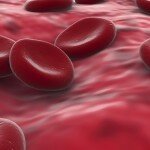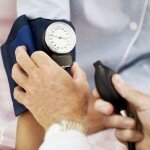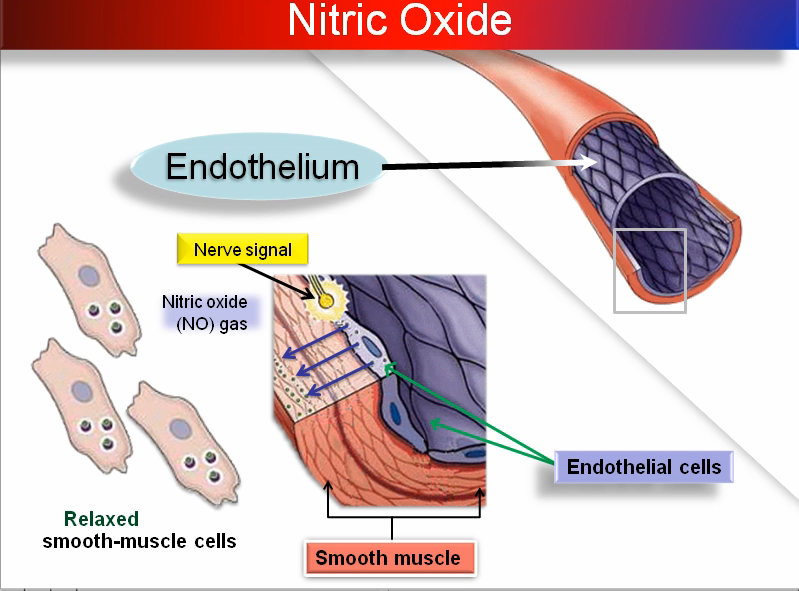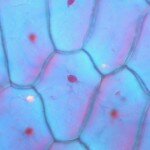The Real Heart of Cardiovascular Health!
When is comes to taking care of your cardiovascular system little to no attention is given to your endothelial cells. Most all of the attention goes to your heart or your arteries and veins. Yet, more and more research is showing that the health of your heart, arteries, veins and all of your cardiovascular system is dependent upon the health of your endothelial cells.
What are Endothelial Cells?
Endothelial cells are the thin layer of cells that line the interior surface of all blood vessels. It is sometimes referred to as the endothelium. It’s important to note that these cells line the entire circulatory system from the heart all the way down to the smallest capillary. When added up, the volume of these endothelial cells would cover the surface area of 8 tennis courts and weigh as much as the liver. That’s amazing since the endothelium is only one cell thick and can’t be seen by the human eye.
Once discovered the endothelium was classified as an inert membrane whose primary function was to keep the blood in the circulatory system and out of the body’s tissues and organs. However, research over the last 25 years has shown that the endothelium is an active, multi-functional organ that plays a vital role in metabolic, immunologic, and cardiovascular health. The endothelial cells ultimately determine the health of your blood vessels and play a major role in preventing cardiovascular disease.
Life Enhancing Functions of the Endothelial Cells!
Because the endothelial cells line every blood vessel they play an important role in the proper function of every organ in your body. This gate-keeping role varies for each organ system. For example, in the brain and retina the endothelial cells are tightly linked together to create a barrier that only allows selective molecules to pass through it. In the liver, spleen and bone marrow, the endothelial cells are loosely linked allowing for cellular trafficking between these intercellular gaps. However, in the kidneys, endocrine glands and intestinal villi, the endothelial cells have a different type of selective permeability to allow for efficient filtering, secretion and absorption based on that organ’s function.
The following is a list of the known functions of the endothelial cells. Each function plays an important role in cardiovascular health and your overall wellness:
Angiogenesis – The formation of new capillaries is called angiogenesis. It is regulated in part by the endothelial cells. This function is extremely important in wound healing. It also plays a significant role in muscle creation and in the heart’s ability to develop collateral vessels. These collateral vessels can help lessen the impact of a blood vessel blockage in the heart by providing alternative routes for blood flow.
Atherosclerosis – For developing countries, atherosclerosis is the most prevalent vascular disease. One of the functions of the endothelium is to facilitate blood flow. It does this by providing a smooth surface that inhibits platelet adhesion and clotting. It also tries to inhibit foreign substances from adhering to its cellular wall which can lead to plaque formations. Large molecules like cholesterol and/or toxic substances like nicotine damage the intercellular junctions between the endothelial cells allowing deposits to build up. This causes the smooth and flexible lining of your blood vessels to become rough and hard.
It is these plaque formations that are at the heart of atherosclerosis or hardening of the arteries. As this process continues over time, the deposits or plaques become larger which narrows the interior of the blood vessel making it harder for blood to pass through. This increases resistance to blood flow which can cause your blood pressure to increase. The following contributing factors can cause the endothelium to lose its ability to prevent these formations: smoking, diabetes, hyperlipidemia, hypertension or high blood pressure, and inflammation. Elevated homocysteine levels have also been associated with premature atherosclerosis.
Atherosclerosis was once thought to be irreversible but new studies clearly show that when the proper biochemical environment is provided the injured endothelium can return to its undamaged state. Proper supplementation with L-arginine, the precursor for Nitric Oxide, has been shown to diminish lesion formation and reverse endothelial dysfunction.
 Blood Clotting – The narrowing of your blood vessels also causes blood turbulence that can lead to the formation of blood clots. These blood clots, if large enough or if they pass through too narrow of an opening, can eventually lodge themselves in a blood vessel causing a blockage. When this happens in the heart we call it a heart attack. When it happens in the brain it is called a stroke.
Blood Clotting – The narrowing of your blood vessels also causes blood turbulence that can lead to the formation of blood clots. These blood clots, if large enough or if they pass through too narrow of an opening, can eventually lodge themselves in a blood vessel causing a blockage. When this happens in the heart we call it a heart attack. When it happens in the brain it is called a stroke.
The endothelial cells produce a molecule called Nitric Oxide (NO) which is critical in the proper control of blood pressure. NO also inhibits platelet adhesion, activation, secretion and aggregation, as well as promoting platelet disaggregation. This is extremely important in preventing blood clots in the vascular system that can lead to heart attacks and strokes. It is also a critical factor in sickle cell anemia to help prevent red blood cells from changing, adhering to each other and clinging to the vascular walls. This helps to prevent blockages which cause most of the pain and tissue damage associated with sickle cell anemia.
While using NO to prevent blood clotting, it’s interesting to note that the endothelial cells are also necessary for blood to clot. They synthesize the vitally important molecule called Factor VIII or von Willibrand’s Factor which is essential for blood clotting. Without this molecule a person could bleed to death from a simple scratch.
Blood Pressure– Not only do the endothelial cells provide a dynamically-controlled structural barrier between the circulating blood and surrounding tissues and organs but they also produce signaling molecules that influence vasodilation and vasoconstriction. Vasodilation causes blood vessels to relax allowing for greater blood flow. This reduces blood pressure. Vasoconstriction causes blood vessels to tighten reducing blood flow and causing blood pressure to increase.
the circulating blood and surrounding tissues and organs but they also produce signaling molecules that influence vasodilation and vasoconstriction. Vasodilation causes blood vessels to relax allowing for greater blood flow. This reduces blood pressure. Vasoconstriction causes blood vessels to tighten reducing blood flow and causing blood pressure to increase.
It is currently believed that the endothelial cells are the controlling factor in the regulation of blood pressure. They produce both Nitric Oxide (NO) which is the most potent vasodilator and Endothelin-1 the most potent vasoconstrictor. The proper production of NO is fundamental to maintaining normal blood pressures because it maintains basal tone by relaxing the vascular smooth muscle cells.
Specialized Barrier Function – Endothelial cells act as selective filters to regulate the passage of gases, fluid and various molecules across their membranes. This is especially important for the renal system and the brain. It is also critical to the proper function of your immune system. Your white blood cells or leucocytes are produced in the bone marrow. They travel through the blood stream where the endothelial cells facilitate their passage into your body’s tissue to allow them to destroy foreign agents or antigens.
Endothelial Cells Produce Nitric Oxide!
The health of your endothelial cells also plays a vital role in one other critical factor. In fact, the 1998 Nobel Prize in Medicine was awarded to three American researchers who discovered how the endothelial cells produced Nitric Oxide (NO). If you review the five major functions of the endothelium you will note that NO is critically involved in three of the five functions.
Who would have ever thought that an environmental pollutant and an extremely reactive and potentially dangerous free radical could also be the most important signaling molecule in your body! Since its discovery much has been learned about NO. For example:
- NO regulates the muscle tone of blood vessels to have a major impact on controlling blood pressure.
- NO stops blood platelet cells from grouping together in a clot to help prevent blockages in the blood vessels.
- NO controls the action of almost every orifice from swallowing to defecation.
- NO helps the immune system fight viral, bacterial and parasitic infections as well as tumors.
- NO causes penile erections by dilating blood vessels.
- NO transmits messages between nerve cells.
- NO seems to be associated with the process of learning, memory, sleeping, feeling pain, and maybe even depression.
- NO has been shown to be a mediator in inflammation and rheumatism.
- NO promotes vascular reparative mechanisms when injury occurs. It is one of the keys to reversing atherosclerosis.
The creation of nitric oxide is dependent upon the health of your endothelial cells, an adequate supply of the essential amino acid L-arginine, and a family of enzymes called nitric oxide synthesis or NOS. It is the NOS enzymes in the endothelial cells that create nitric oxide from L-arginine. However, when the endothelial cells are damaged by high blood pressure, high sugar levels, cholesterol, and smoking this decreases nitric oxide production leading to a whole host of health and wellness issues. The one health issue that gets most of the attention today is erectile dysfunction or ED. If this is a concern then please see my article “Poor Sexual Health? A Natural Alternative to Viagra!”
L-arginine – It’s Benefits and It’s Dark Side!
The essential amino acid L-arginine is found in foods like milk, cheese, yogurt, meat, and other proteins. When isolated and properly brought into the body, L-arginine has the ability to produce some remarkable results. Many scientists refer to L-arginine as The Miracle Molecule! Columbia University refers to L-arginine as the “Magic Bullet” for the cardiovascular system. Research suggests the following benefits:
- Stimulates growth hormone for anti aging benefits.
- Counters heart disease and aids in blood pressure regulation.
- Improves insulin sensitivity to help normalize blood sugar.
- Bolsters the immune system, boosts energy, and increases lean muscle.
- Precursor for the synthesis of nitric oxide.
- Promotes reproductive health.
- Natural alternative for Viagra-like products.
Because of this huge potential to aid people, especially in producing nitric oxide, L-arginine supplements have populated the shelves of many health food stores, pharmacies, and websites. However, before you go out and buy an L-arginine supplement you need to know its dark side. In its pure form L-arginine tastes terrible and can have some serious side effects like:
- Increasing free radical brain damage.
- Activation of the herpes simplex virus.
- Reduced sperm motility.
It is why L-arginine is also referred to as “the double-edged sword.”
To be effective, an L-arginine supplement must utilize a low-glycemic pathway. Research has shown that high-glycemic ingredients will interfere with L-arginine absorption. There are also other ingredients that will directly block L-arginine’s health benefits. These include lysine, ornithine, proteins, amino acids, high glycemic sugars, synthetic sweeteners and flavor systems.
The amount of L-arginine consumed is also important. A daily dose of 5 grams of elemental, pharmaceutical-grade L-arginine will provide cardiovascular benefits and good nitric oxide production. If you are going to use an L-arginine supplement, then ask the following questions:
- Does it include ingredients that will interfere with its absorption?
- Who is the L-arginine researcher behind the product?
- What is their level of expertise in product design?
- Are there any documented studies to show the effectiveness of the product you are considering?
For those searching for a proven and effective L-arginine product that will benefit the cardiovascular system and improve nitric oxide production, then I would highly recommend ProArgi9 Plus from Synergy WorldWide.
Can Atherosclerosis be Reversed?
 At one time most health care professionals would have said “No” to this question. However, in the late 1950s this began to change when an accomplished engineer by the name of Nathan Pritikin (who at an early age was diagnosed with heart disease) began a personal journey to correct his cardiovascular problem through nutrition rather than medication. Although Nathan Pritikin developed a large following, it wasn’t until Dr. David Lehr, a well-known Miami cardiologist, risked his career by joining forces with Mr. Pritikin. Their 1977 and 1978 interviews on 60 Minutes were foundation in helping to propel the message that a focus on nutrition and exercise, rather than drugs and surgery, were valid methods for improving health and preventing heart attacks. The Pritikin Program is now one of the most effective programs for reducing the risks of cardiovascular disease.
At one time most health care professionals would have said “No” to this question. However, in the late 1950s this began to change when an accomplished engineer by the name of Nathan Pritikin (who at an early age was diagnosed with heart disease) began a personal journey to correct his cardiovascular problem through nutrition rather than medication. Although Nathan Pritikin developed a large following, it wasn’t until Dr. David Lehr, a well-known Miami cardiologist, risked his career by joining forces with Mr. Pritikin. Their 1977 and 1978 interviews on 60 Minutes were foundation in helping to propel the message that a focus on nutrition and exercise, rather than drugs and surgery, were valid methods for improving health and preventing heart attacks. The Pritikin Program is now one of the most effective programs for reducing the risks of cardiovascular disease.
In 1998 the Nobel Prize in Medicine was given to three American researchers who discovered how the endothelial cells converted L-arginine into Nitric Oxide, the master signaling molecule of the cardiovascular system. In his 2005 National Bestseller NO More Heart Disease, Nobel Laureate Dr. Louis J. Ignarro makes the following statement:
“My colleagues, Ferid Murad and Robert Furchgott, and I had discovered ‘the atom’ of cardiovascular health – a tiny molecule called nitric oxide. NO – as it is known by chemists – is produced by the body specifically to help keep arteries and veins free of the plaque that causes stroke and to maintain normal blood pressure by relaxing the arteries, thereby regulating the rate of blood flow and preventing coronaries. Nitric oxide is the body’s natural cardiovascular wonder drug.”
Also in the 1990s Dr. J. Joseph Prendergast began his own personal journey to help reverse the atherosclerosis in his own arteries. As he researched this field and talked to those on the cutting edge of vascular research he began to formulate an L-arginine/Nitric Oxide protocol that has evolved over the years. His formulations have had remarkable result for himself personally as well as for his patients. Because a large portion of his patient population are diabetics the potential incident of cardiovascular complications are extremely high. Yet, in helping over 6,000 patients follow his L-arginine/Nitric Oxide protocol, he has less than 1% who experience cardiovascular issues. It is his formulation that is the basis for the creation of ProArgi-9 Plus from Synergy WorldWide, which many consider to be the premier L-arginine, L-citrulline product to aid the cardiovascular system.
Two Excellent Sources for Additional Information!
To aid you in understanding the endothelial cells, I would recommend the following two sources:
1. For those who like scientific research, then click on “Endothelial Cells in Physiology and in the Pathophysiology of Vascular Disorders” from the Journal of the American Society of Hematology. This long article will provide you with a very detailed analysis of the functional role of the endothelial cells. This article also contains over 450 references to provide you with a wealth of additional sources about the endothelium.
 2. For those who prefer a visual summary of the role of the endothelium, friends of mine have produced an excellent video about the endothelial cells. Just click on the picture to the left and allow time for the video to load. It is well worth your time and attention.
2. For those who prefer a visual summary of the role of the endothelium, friends of mine have produced an excellent video about the endothelial cells. Just click on the picture to the left and allow time for the video to load. It is well worth your time and attention.
Conclusion
It’s amazing to me that a simple lining of cells on the interior walls of your blood vessels could have such a profound affect on your cardiovascular health and overall wellness. Yet that is exactly the case with your endothelial cells. Their health is critical to your health and your body’s ability to produce nitric oxide.
High blood pressure, high sugar levels, cholesterol, and smoking will damage your endothelial cells. Properly bringing in a good source of L-arginine, combined with good eating and lifestyle habits like those found in the Mediterranean diet, can help reverse damage to the endothelial cells. This will help them stay healthy so that they produce a good supply of nitric oxide. Your heart and other key organs will thank you.
Together we can work to save a million lives!
Dan Hammer
The information contained in this blog is for general information purposes only and never as a substitute for professional medical advice or medical exam. The information about endothelial cells has not been evaluated by the Food and Drug Administration and should not be used to diagnose, treat, cure or prevent any disease without the supervision of a qualified medical doctor.


Pingback: The Need for L-Citrulline! | No More Heart Disease
Pingback: ProArgi-9 Plus Instructions! | No More Heart Disease
Pingback: What Foods Contain L-Arginine and L-Citrulline? | No More Heart Disease
Pingback: What Foods Contain L-Arginine and L-Citrulline? | No More Heart Disease
Pingback: Can Heart Attacks Be Prevented? | No More Heart Disease
Pingback: Oxygen, Free Radicals, and Antioxidants! | No More Heart Disease
Pingback: Energy Production and Cardiovascular Health! | No More Heart Disease
Pingback: Arteriosclerosis and Atherosclerosis – General Overview! | No More Heart Disease
Pingback: Arteriosclerosis and Atherosclerosis – Treatment Programs! | No More Heart Disease
Pingback: Certain Carbohydrates Increase Heart Disease Risk! | No More Heart Disease
Pingback: Food versus Supplementation for L-Arginine and L-Citrulline! | No More Heart Disease
Pingback: High Desert Heart Institute – Angelo Cici Interview! | No More Heart Disease
Pingback: Atherosclerosis and Osteoporosis Link! | No More Heart Disease
Pingback: Vitamin D and Heart Disease! | No More Heart Disease